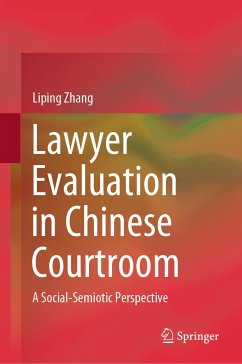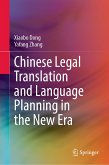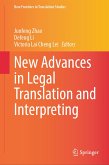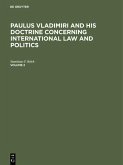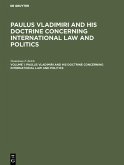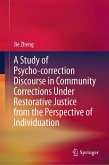This book focuses on the speech style of lawyer talk in contemporary Chinese courtrooms. The topic is intriguing to readers who may wonder how lawyers compete with their opposing counterparts in an adversarial trial system in China. The legal tradition in Confucianism, which advocates harmony in interpersonal relationships, has historically guided the practice of law in China. The book analyses how lawyers manage to compete in this system. Applying the social semiotic view of language in the Hallidayian sense, specifically systemic functional linguistics and its appraisal theory, this study interprets the subjectivity of legal language by lawyers. The speech style in legal argument presentation is described as 'rational'. The exploration of the rational speech style of lawyers is a theoretical and discursive topic. It draws upon Habermasian philosophy of intersubjectivity in legal argumentation and considers the cultural and legal contexts of China as contextual constraints. The key construct of lawyer evaluation is fully captured in this discussion. As a linguistic phenomenon and unit of analysis, discourse can be examined both within local clauses and in larger stretches of talk beyond clauses. Additionally, it serves as an effective means for constructing a rational speech style for lawyers. Most importantly, discourse is a discursive act that negotiates legal arguments in the dynamic speech exchanges of a court trial, which is embedded in a wider social and cultural context.
The book showcases instances of lawyer talk in well-documented trials in China and offers a good opportunity for readers to gain a general understanding of courtroom discourse in the Chinese context. It introduces readers with special interests in legal language and the law to the solidarity dimension of legal language and arguments, an alternative to the confrontational or hostile lawyer talk in trials in countries with a common-law system. The analysis presented is refined and the language used is clear, concise, and objective.
Dieser Download kann aus rechtlichen Gründen nur mit Rechnungsadresse in A, B, BG, CY, CZ, D, DK, EW, E, FIN, F, GR, HR, H, IRL, I, LT, L, LR, M, NL, PL, P, R, S, SLO, SK ausgeliefert werden.
Hinweis: Dieser Artikel kann nur an eine deutsche Lieferadresse ausgeliefert werden.

